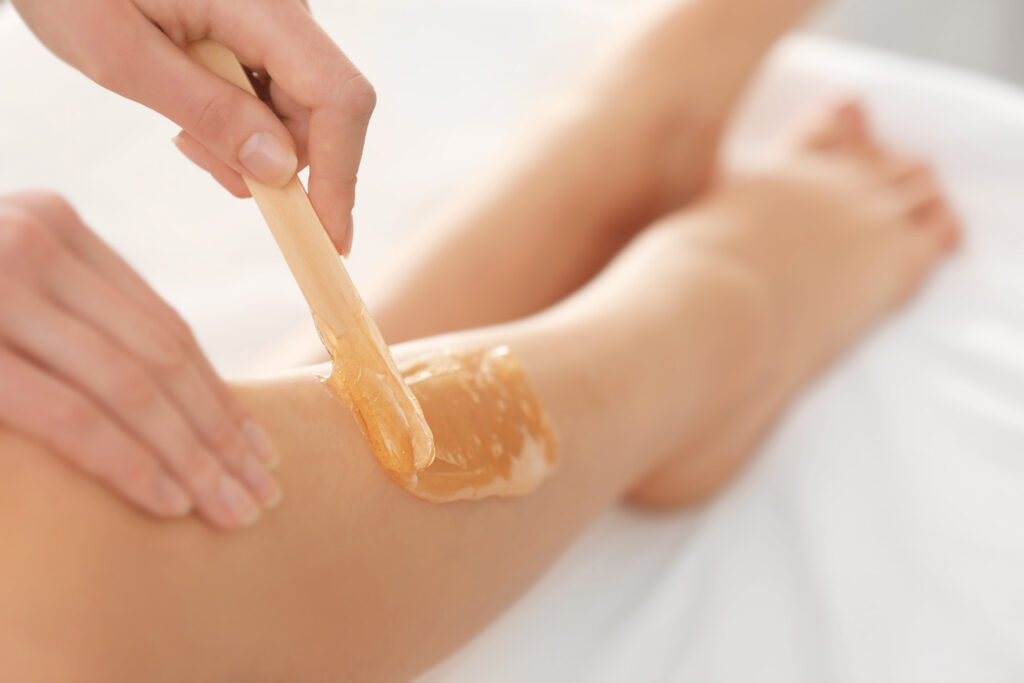
Unveiling the Secrets to Radiant Skin at Home
Everyone dreams of radiant, glowing skin, but with so many products and routines out there, it can be overwhelming, especially for skincare newbies. That’s why we’ve curated an easy-to-follow guide that demystifies the world of skincare and provides practical steps to achieve beautiful skin right from the comfort of your home. Whether you’re a beauty enthusiast or just starting your skincare journey, this guide will equip you with the knowledge and confidence to create a routine tailored to your skin’s unique needs.
In this post, you’ll learn about essential skincare routine steps, the importance of each one, and how to incorporate them into your daily regimen. Get ready to transform your skin and boost your confidence!
Essential Skin Care Routine Steps
A well-rounded skincare routine is crucial for maintaining healthy, glowing skin. While individual needs may vary, the following steps are fundamental to building an effective daily regimen:
- Cleansing: Start with a gentle cleanser to remove dirt, oil, and makeup from your skin. Cleansing twice a day—morning and night—helps keep your skin fresh and clean without stripping it of essential oils.
- Toning: After cleansing, use a toner to help balance your skin’s pH levels and prepare it for further treatment. Toners can also help with additional cleansing, removing any residual impurities.
- Exfoliating: Incorporate exfoliation into your routine 2-3 times a week to slough away dead skin cells and promote cell turnover. Choose between chemical exfoliants, like AHAs or BHAs, and physical ones, depending on your skin type and any sensitivities.
- Treatment: Apply any treatment serums or spot treatments next. These products are typically more concentrated and target specific concerns, such as acne, hyperpigmentation, or fine lines.
- Moisturizing: Hydrate your skin with a moisturizer suited to your skin type. This step helps lock in hydration, creating a protective barrier against environmental aggressors.
- Sun Protection: Finish your morning routine with broad-spectrum sunscreen to shield your skin from harmful UV rays. Daily sunscreen use is essential to prevent premature aging and protect against skin cancer.
By following these steps, you can establish a solid foundation for your skincare routine, helping your skin stay healthy and radiant. Adjust the products you use based on your skin’s needs and season changes for optimal results.
Understanding Your Skin Type

Before you start any skincare routine, it’s crucial to understand your skin type. Your skin type will determine the kind of products you should use and the steps you need to follow. The most common skin types are:
- Normal: Balanced skin with minimal issues.
- Oily: Excess sebum production leading to shiny skin and enlarged pores.
- Dry: Lack of moisture resulting in flaky, rough skin.
- Combination: A mix of oily and dry areas, typically oily in the T-zone and dry on the cheeks.
- Sensitive: Easily irritated skin that may react to certain products.
Identifying your skin type can be as simple as observing how your skin feels and behaves throughout the day. Don’t worry if you’re unsure—many skincare products are designed for multiple skin types.
The Importance of Cleansing
Cleansing is the first and arguably the most important step in any skincare routine. It removes dirt, oil, and impurities that accumulate on your skin throughout the day. A good cleanser should effectively clean your skin without stripping it of its natural oils.
For oily skin, opt for a foaming or gel cleanser that can help control excess oil. If you have dry skin, a creamy or hydrating cleanser will be more suitable. Those with sensitive skin should look for a gentle, fragrance-free option to avoid irritation.
Using lukewarm water, wash your face with your chosen cleanser twice a day—once in the morning and once before bed. This simple step sets the foundation for the rest of your skincare routine.
Exfoliation for Smooth Skin

Exfoliation is key to achieving smooth, radiant skin. It helps remove dead skin cells, unclog pores, and promote cell turnover. There are two main types of exfoliants:
- Physical Exfoliants: Scrubs with small granules that manually slough off dead skin.
- Chemical Exfoliants: Products containing acids like AHAs (alpha-hydroxy acids) and BHAs (beta-hydroxy acids) which dissolve dead skin cells.
For those with sensitive skin, a gentle chemical exfoliant may be less abrasive than a physical scrub. If you have oily skin, a BHA exfoliant can penetrate deeper into the pores and control oil production. Remember to exfoliate 2-3 times a week to avoid over-exfoliating, which can lead to irritation.
The Magic of Toners
Toners play an essential role in restoring your skin’s pH balance after cleansing and exfoliation. They also help to prep your skin for better absorption of subsequent products. Toners can provide hydration, minimize pores, and remove any residual impurities.
For normal to dry skin, look for hydrating toners containing ingredients like hyaluronic acid. Those with oily or acne-prone skin might benefit from toners with astringent properties, such as witch hazel or salicylic acid. Simply apply your toner with a cotton pad or your hands, gently patting it into your skin.
The Power of Serums
Serums are concentrated treatments designed to target specific skin concerns, such as aging, hyperpigmentation, or hydration. They contain potent active ingredients that penetrate deeply into the skin.
Common serum ingredients include:
- Vitamin C for brightening and antioxidant protection.
- Hyaluronic Acid for intense hydration.
- Retinol for anti-aging and skin renewal.
Choose a serum based on your primary skin concern. Apply a few drops to your face and neck, gently pressing it into your skin. Allow the serum to fully absorb before moving on to the next step.
Moisturizing for Hydration
Moisturizing is a crucial step for maintaining healthy, hydrated skin. It helps lock in moisture, strengthens the skin barrier, and protects against environmental damage. The type of moisturizer you choose will depend on your skin type.
For dry skin, opt for a thick, creamy moisturizer that provides intense hydration. Those with oily skin should look for lightweight, non-comedogenic formulas that won’t clog pores. Combination skin may benefit from using different moisturizers on different areas of the face.
Apply your moisturizer in upward, circular motions to stimulate circulation and prevent sagging. Don’t forget to extend it to your neck and décolletage for comprehensive care.
Sunscreen for Protection
Sunscreen is non-negotiable in any skincare routine. It protects your skin from harmful UV rays, prevents premature aging, and reduces the risk of skin cancer. Even if you’re staying indoors, UV rays can still penetrate through windows, making daily sunscreen application essential.
Choose a broad-spectrum sunscreen with at least SPF 30. For oily skin, a matte-finish or gel-based sunscreen works well, while dry skin may require a more hydrating formula. Apply sunscreen generously to all exposed areas of skin at least 15 minutes before going outside.
The Role of Eye Creams
The skin around your eyes is delicate and prone to showing signs of aging, such as fine lines, dark circles, and puffiness. Eye creams are specially formulated to address these concerns and provide targeted hydration.
Look for eye creams containing ingredients like peptides, hyaluronic acid, and caffeine. Apply a small amount using your ring finger, gently tapping it around the orbital bone without pulling or tugging at the skin.
Weekly Treatments
Incorporating weekly treatments like masks and face oils can provide an extra boost to your skincare routine. Masks offer concentrated benefits and can address various concerns, while face oils provide nourishment and hydration.
Choose masks based on your skin’s needs:
- Clay Masks for oily or acne-prone skin to draw out impurities.
- Hydrating Masks for dry skin to replenish moisture.
- Brightening Masks with ingredients like vitamin C for dull skin.
Face oils, such as argan or rosehip oil, can be used to lock in moisture and provide additional nutrients. Apply them as the final step in your nighttime routine for a radiant glow by morning.
Healthy Habits for Better Skin
Achieving glowing skin goes beyond skincare products—healthy habits play a significant role too. Ensure you’re getting enough sleep, drinking plenty of water, and maintaining a balanced diet rich in fruits, vegetables, and omega-3 fatty acids.
Regular exercise boosts circulation and promotes a healthy complexion. Managing stress through activities like meditation or yoga can also improve skin health, as stress can trigger breakouts and other skin issues.
Navigating Common Skin Issues
It’s normal to experience skin issues like acne, hyperpigmentation, or sensitivity. Understanding how to address these concerns can help you maintain a clear, healthy complexion.
- Acne: Use products with salicylic acid or benzoyl peroxide to treat breakouts. Avoid picking at your skin to prevent scarring.
- Hyperpigmentation: Incorporate ingredients like vitamin C, niacinamide, and arbutin to fade dark spots.
- Sensitivity: Stick to gentle, fragrance-free products and avoid known irritants.
If you’re unsure about how to tackle a specific skin issue, consider consulting a dermatologist for personalized advice.
Building a Sustainable Routine
Consistency is key to seeing results from your skincare routine. Start with the basics and gradually introduce new products to avoid overwhelming your skin. Keep track of how your skin responds to different products and adjust your routine as needed.
Experiment with different brands and formulations to find what works best for you. Remember, skincare is a personal journey, and what works for someone else may not work for you. Listen to your skin and give it the care it deserves.
Additional Tips for Skin Health
Achieving and maintaining healthy skin goes beyond a regular skincare routine; it also involves making lifestyle adjustments that support skin wellness. Here are some additional tips for keeping your skin at its best:
- Stay Hydrated: Drinking enough water throughout the day helps keep your skin hydrated from the inside out. Hydration is crucial for maintaining the skin’s elasticity and natural glow.
- Eat a Balanced Diet: Consuming a diet rich in fruits, vegetables, lean proteins, and healthy fats provides the necessary nutrients for skin health. Antioxidant-rich foods, such as berries and leafy greens, combat free radicals and promote a more youthful complexion.
- Get Adequate Sleep: Quality sleep is essential for the body to repair and regenerate skin cells. Aim for 7-9 hours of sleep per night to support overall health and reduce signs of fatigue on your skin.
- Manage Stress: Chronic stress can negatively impact your skin, leading to conditions such as acne or eczema flare-ups. Incorporating stress-reducing activities like yoga, meditation, or deep breathing exercises can improve both mental well-being and skin health.
- Avoid Smoking and Excessive Alcohol Consumption: Smoking can lead to premature aging, while excessive alcohol can dehydrate the skin, affecting its overall appearance. Limiting these factors can help maintain skin’s elasticity and vitality.
Integrating these tips into your daily routine can complement your skincare regimen, fostering an environment where your skin can thrive. Remember, achieving healthy skin is a holistic process that involves care from both the inside and the outside.
Conclusion
Creating an effective skincare routine steps at home doesn’t have to be complicated. By understanding your skin type, following essential steps, and incorporating the right products, you can achieve a glowing complexion that boosts your confidence.






